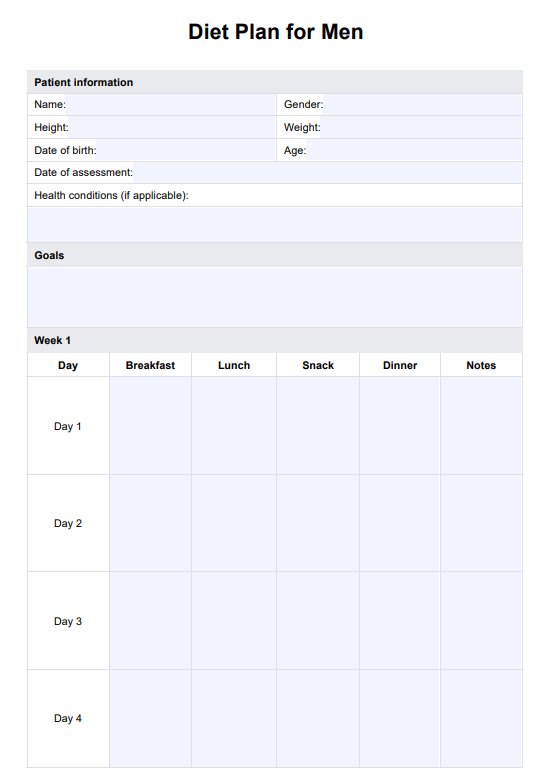The best diet for a male focuses on a balanced eating pattern that includes important nutrients like lean proteins, whole grains, healthy fats, and fiber-rich foods. A healthy eating plan should support muscle maintenance and energy levels and reduce the risk of other health conditions like heart disease and diabetes.

Diet Plan For Men
Access a Diet Plan for Men to support and effectively provide male clients with clinical nutrition guidance. Get this for free!
Diet Plan For Men Template
Commonly asked questions
A high-protein, moderate-carb diet with controlled calories is most effective for weight loss in males. This diet emphasizes whole foods, lean meats, and fiber-rich vegetables. Reducing processed meals and incorporating structured portion control helps maintain satiety and sustain long-term weight loss.
A well-balanced, healthy diet should include meals with lean proteins like chicken or fish, whole grains, vegetables, fruits, and healthy fats from nuts and avocados. Proper hydration and meal timing also play a crucial role in maintaining metabolism and overall health.
EHR and practice management software
Get started for free
*No credit card required
Free
$0/usd
Unlimited clients
Telehealth
1GB of storage
Client portal text
Automated billing and online payments











